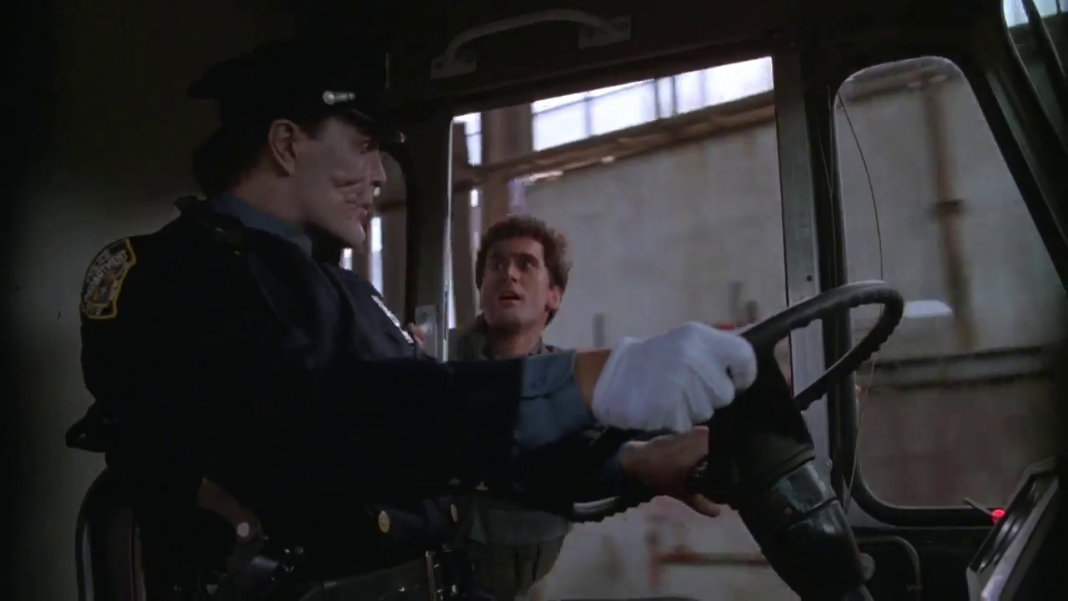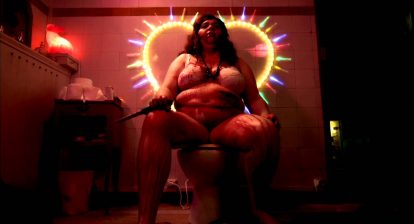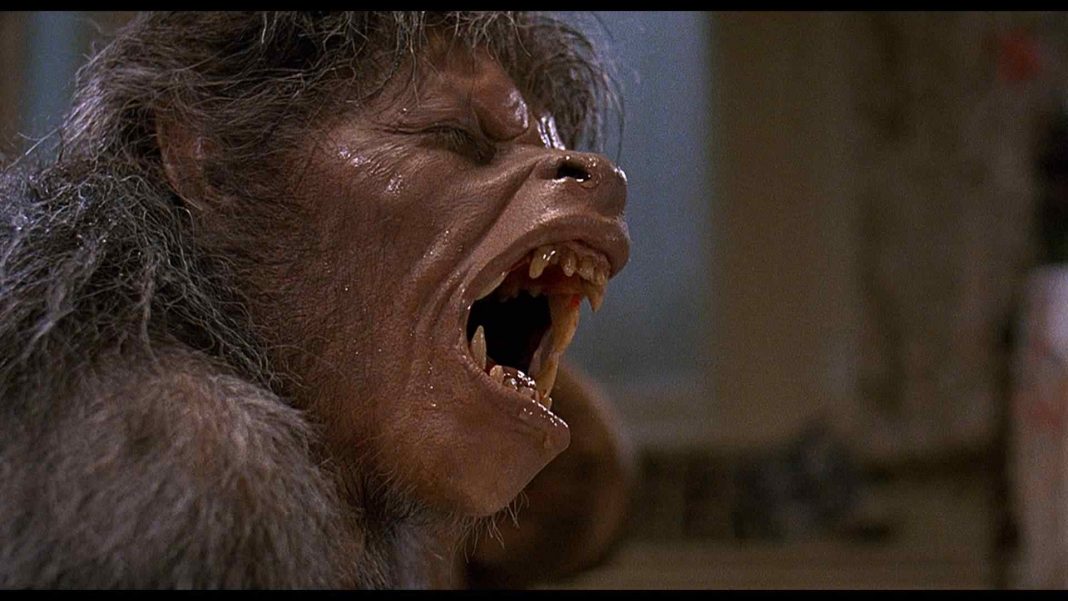When you simply want to kick off an article by saying Maniac Cop rules, that’s the first sign that a movie still holds up better than anyone expected it to. Before even going into the story itself, the first thing that stands out immediately is the talent involved. Written by Larry Cohen, a master of biting social satire. Directed by William Lustig, a master of grit and authentic New York City atmosphere. These two cult filmmakers turn out to be two great tastes that just taste great together.
But then! Then, you have Bruce Campbell and Tom Atkins as the two leads. These are two of the most iconic cult heroes ever, and they share the screen without taking anything away from the other. These are two of the biggest genre, Atkins at the height of his power, Campbell just coming off of Evil Dead 2. The film essentially passes the torch from one to the other in a way that’s jarring at first but winds up working really, really well.
To be honest, though, Maniac Cop holds up because of its subject matter. In 2017, somehow, against all odds, it holds up better now than it probably did when first released because of what it’s actually about. And it’s about police brutality. That sounds simple and kind of obvious, given the title.
But it’s truly, completely about police brutality and examines the topic from every conceivable angle. It is a more thought provoking take than anything we’ve seen in the past year, and it’s almost thirty years old.

Even then, the real reason he went to prison was because he himself sought to expose corruption in the department, which adds a great sense of irony to what he eventually becomes. What really makes Maniac Cop stand out is that it’s not Cordell or his motives that make the film an interesting take on police brutality. In fact, it’s virtually everything else around him that does that.
When Tom Atkins’ Lieutenant McCrae begins to piece together that all of the witnesses have reported the killer wearing a police officer’s uniform, the department wants to bury it. They do not want it getting out there that a cop could have committed these crimes. There’s a lot of talk about standing up for the uniform and the badge. Even when the evidence is clear, they’re burying it to defend a cop they know is a murderer, even when they don’t know who it is.
They only start taking Campbell’s character seriously as a suspect when Cordell frames him for the massacre of an entire police station. Anything less, and they probably never would have let this get pinned on a cop.
 Where Maniac Cop really shines, though, is in its well-rounded exploration of the topic. It truly comes at it from every angle, hitting the subject from both sides. When McCrae can’t get the department to do anything about the killings, when they won’t let him report that a cop has been committing the crimes, he goes behind their back and takes it to the press.
Where Maniac Cop really shines, though, is in its well-rounded exploration of the topic. It truly comes at it from every angle, hitting the subject from both sides. When McCrae can’t get the department to do anything about the killings, when they won’t let him report that a cop has been committing the crimes, he goes behind their back and takes it to the press.
And that makes things even worse. That’s what’s great about Maniac Cop. It’s thinly veiled social satire, but not taking any kind of “the only good cop is a dead cop” stance. In one of the most brilliant sequences, after the news about a killer cop is broken, a woman is so terrified of the sight of a police officer approaching her car that she shoots him in the face in a moment of panic. Just a cop making his rounds.
In the same movie, we have the police covering up the fact that one of their own might be a murderer to protect the sanctity of the badge and we have the media eating up the headline and running with the story that cops are evil and not to be trusted. Both situations are terrible and both situations are accurate. The film isn’t asking you to fall on one side or the other, it simply plants you between the two and allows you to arrive at your own conclusion.

The best horror movies ask questions, they don’t answer them. That’s why I think Maniac Cop still holds up as an astonishingly smart, bitingly relevant social commentary. It makes even more since now. It looks and feels like the eighties, but it doesn’t feel like a feature from that era because every single aspect of it is so insanely relevant to 2017.
It feels like a horror film from the same era as Get Out, and that is a huge complement to the way it has been able to stand the test of time.
Maniac Cop is one of those features that I always thought “I should have watched this by now.” Even in high school, I was guilty that I hadn’t seen it yet. But I think, somehow, that I managed to wait for the perfect time.
If I’d watched it when I was younger, I’m not sure it would have had remotely the same impact. Like some of the best the horror genre has to offer, this one has only become more important as time has gone on.







